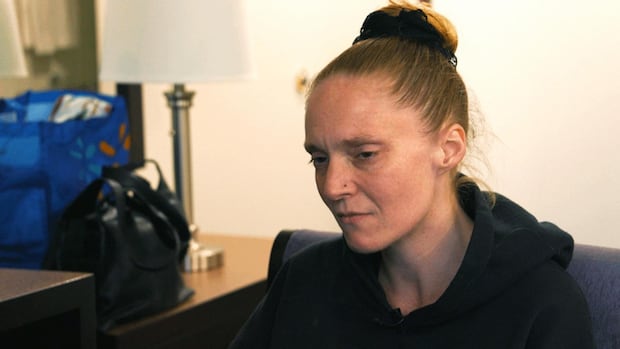The Supreme Court of Canada has ruled that a woman originally convicted in the 2011 drowning death of a toddler in her care must be acquitted.
Tammy Marion Bouvette was babysitting 19-month-old Iyanna Teeple in Cranbrook, B.C., in 2011 when the toddler was found unresponsive in the bath. Teeple was flown to a hospital in Calgary, where she later died.
Bouvette was originally charged with second-degree murder in the child’s death, then later pleaded guilty to the lesser charge of criminal negligence. She was sentenced to 12 months in jail.
But an independent review of the case determined the Crown hadn’t disclosed all the evidence to Bouvette or her counsel before she entered her guilty plea.
In 2023, the B.C. Court of Appeal quashed her conviction and ordered a stay of proceedings, but declined to enter an acquittal.
Bouvette appealed and, in a ruling released Friday morning, the Supreme Court of Canada concluded she should be immediately acquitted on the grounds that the Crown also sought an acquittal and said it would call no evidence at a new trial.
‘A miscarriage of justice’
The case became the subject of an investigation by CBC’s The Fifth Estate in 2020 after CBC journalists uncovered a report that criticized pivotal pathology evidence in the Crown’s case against Bouvette.
Bouvette has maintained she did not abuse or kill the child and told The Fifth Estate she had wanted to avoid a lengthier prison sentence for a murder charge when she made her plea.

In 2023, the B.C. Court of Appeal determined the B.C. Prosecution Service had failed to disclose to Bouvette’s defence lawyers several items of key evidence, including the pathology evidence report, which supported Bouvette’s claim that she had not hurt or neglected the child.
Bouvette’s former defence lawyer told The Fifth Estate that he had not received that report from the Crown during the prosecution.
At the time, the judges wrote they “make no finding of bad faith or malice on the part of the Crown. But neither can we ignore that the disclosure breaches were not isolated or confined to information of dubious value to the appellant.
“As a consequence of material non-disclosure, the appellant was deprived of the opportunity to make an informed decision about how to plead, apprised of the strengths and weaknesses of the case against her on fundamental issues.”
The court ruled that Bouvette’s criminal negligence conviction was “the product of a miscarriage of justice,” and ordered a stay of proceedings because retrying her case would be an “abuse of process.”
Bouvette told CBC News she is pleased with the decision and hopes she and her family can “move forward.”
“I’m just happy by everything and that the truth is out and everyone can stop saying what they’re saying about me, and my whole life could be looked at in a different light with me and my family,” Bouvette said.
“There’s closure now.”
‘Conviction would be unreasonable … with no evidence’
The Supreme Court’s Friday decision says the circumstances of Bouvette’s case “weigh heavily in favour of an acquittal.”
“[Bouvette] has already served the entirety of her sentence. The victim’s family fully supports an acquittal, and the conviction resulting from her false guilty plea has had a devastating impact on her life,” the decision reads.
The judges were unanimous in their decision that Bouvette should be acquitted, if for different reasons.
Writing for the majority, Justice Nicholas Kasirer said the first possible ground for an acquittal under the Criminal Code is where there’s a lack of evidence to ground a reasonable conviction.
The second possible ground is where the Crown seeks an acquittal and says it would call no evidence at a new trial.
Kasirer said Bouvette was acquitted on this second ground.
The judgment notes that when Bouvette appealed to the court to seek an acquittal, the Crown also “made significant concessions” and agreed that she should be acquitted.
It notes the Crown clarified in submissions to the Supreme Court that if a new trial were ordered, it would “call no evidence.”
A B.C. court has set aside the conviction of Tammy Bouvette, who pleaded guilty to criminal negligence in the drowning death of a toddler in 2012, calling it a miscarriage of justice and admitting mistakes were made during her prosecution. Bouvette’s lawyers say it makes little difference because ‘the damage has been done.’
“Unless it would be contrary to the public interest, an appellate court must acquit, thereby giving effect to circumstances that would lead directly to an acquittal if a new trial were ordered, because conviction would be unreasonable on a record with no evidence,” the decision reads.
Kasirer goes on to write that “rather than forcing the parties to go through pro forma proceedings to achieve this result [the acquittal], or standing in the way of this result by entering a judicial stay, the just result is for the acquittal to be entered now, even though there is evidence on the record that could lead a reasonable jury, properly instructed, to convict [Bouvette] at a new trial.”

